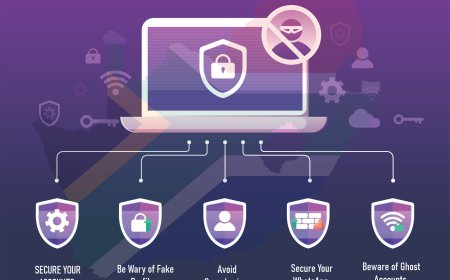Cybersecurity in Healthcare: Safeguarding Patient Data in Zimbabwe
As the world becomes increasingly digitized, the healthcare sector in Zimbabwe faces growing threats from cyber attacks. With the sensitive nature of patient data and the critical importance of uninterrupted medical services, the need for robust cybersecurity measures has never been more paramount.
1. Cybersecurity in Healthcare: Safeguarding Patient Data in Zimbabwe

In Zimbabwe, the healthcare industry has rapidly embraced technology, from electronic health records to telemedicine. While these advancements have brought significant benefits, they have also exposed the sector to a myriad of cyber risks, including data breaches, ransomware attacks, and system disruptions.
One of the primary concerns is the protection of patient data. Healthcare organizations in Zimbabwe often store a wealth of sensitive information, including personal details, medical histories, and financial information. This data is highly valuable to cybercriminals, who can exploit it for identity theft, financial fraud, and other malicious purposes.
One of the primary concerns is the protection of patient data. Healthcare organizations in Zimbabwe often store a wealth of sensitive information, including personal details, medical histories, and financial information. This data is highly valuable to cybercriminals, who can exploit it for identity theft, financial fraud, and other malicious purposes.
"Cybersecurity is not just an IT issue; it's a matter of patient safety and trust," says Dr. Tendai Mhizha, a leading healthcare expert in Zimbabwe. "Healthcare providers have a moral and legal obligation to safeguard the confidentiality, integrity, and availability of patient data."
2. To address this challenge, healthcare organizations in Zimbabwe must prioritize the implementation of robust cybersecurity measures. This includes:

- Implementing strong access controls: Ensuring that only authorized personnel can access sensitive data, through the use of multi-factor authentication, regular password updates, and user access reviews.
- Enhancing data encryption: Encrypting patient data both at rest and in transit, to protect it from unauthorized access and tampering.
- Regularly updating software and systems: Applying the latest security patches and updates to reduce the risk of vulnerabilities being exploited by cybercriminals.
- Providing comprehensive employee training: Educating healthcare staff on cybersecurity best practices, such as recognizing phishing attempts and securely handling sensitive data.
- Developing comprehensive incident response plans: Establishing clear protocols for responding to and recovering from cyber incidents, to minimize the impact on patient care and data.
By taking these proactive steps, healthcare organizations in Zimbabwe can significantly enhance their cybersecurity posture and protect the sensitive information entrusted to them by their patients.
"Cybersecurity is not just an IT problem; it's a shared responsibility," says Dr. Mhizha. "By working together, healthcare providers, policymakers, and the public can create a safer, more resilient healthcare ecosystem for all Zimbabweans."
As the country continues to navigate the digital transformation of its healthcare sector, the importance of robust cybersecurity measures cannot be overstated. By prioritizing the protection of patient data, healthcare organizations in Zimbabwe can build trust, safeguard patient well-being, and ensure the continued resilience of the nation's medical services.
What's Your Reaction?
 Like
0
Like
0
 Dislike
0
Dislike
0
 Love
2
Love
2
 Funny
0
Funny
0
 Angry
0
Angry
0
 Sad
0
Sad
0
 Wow
0
Wow
0










































